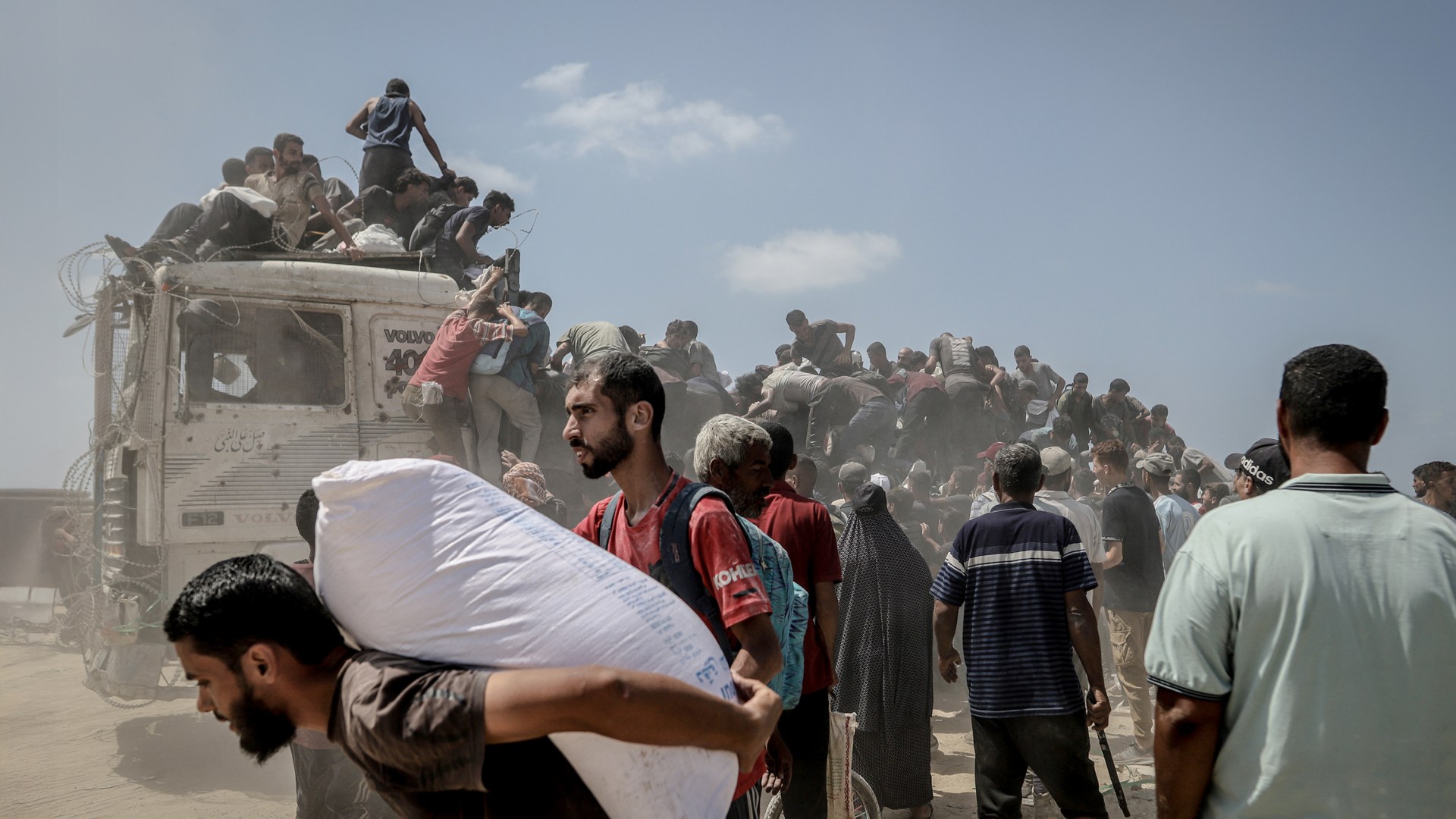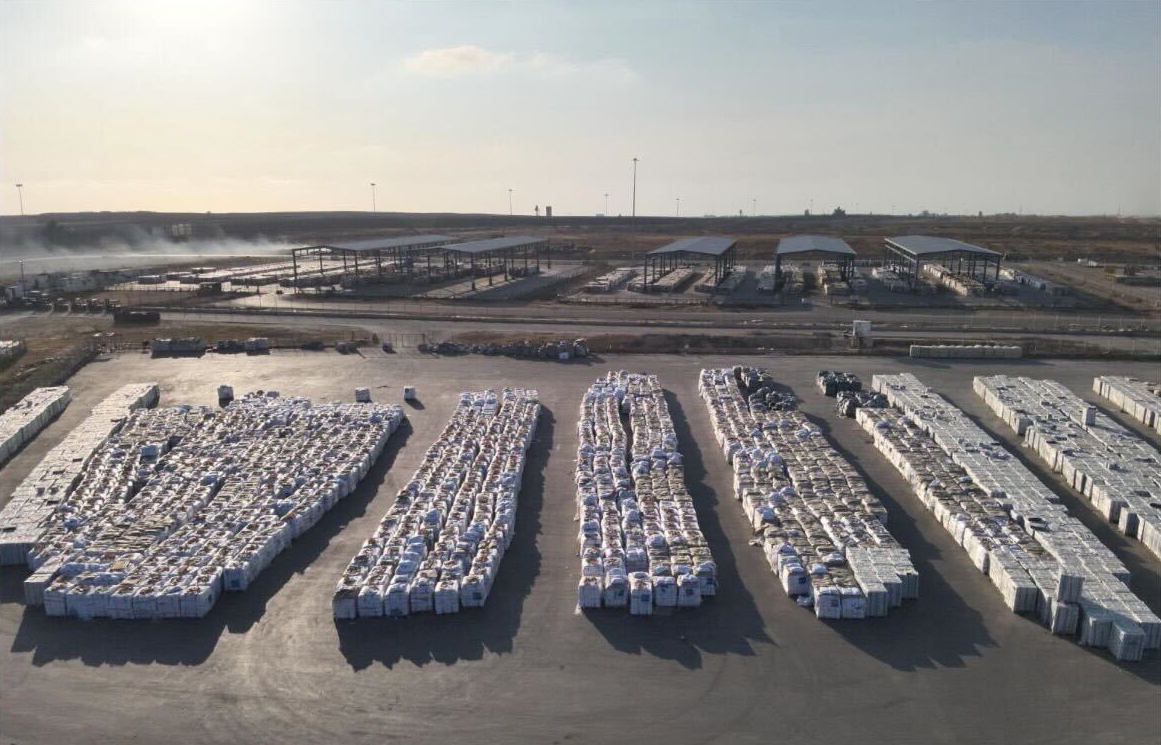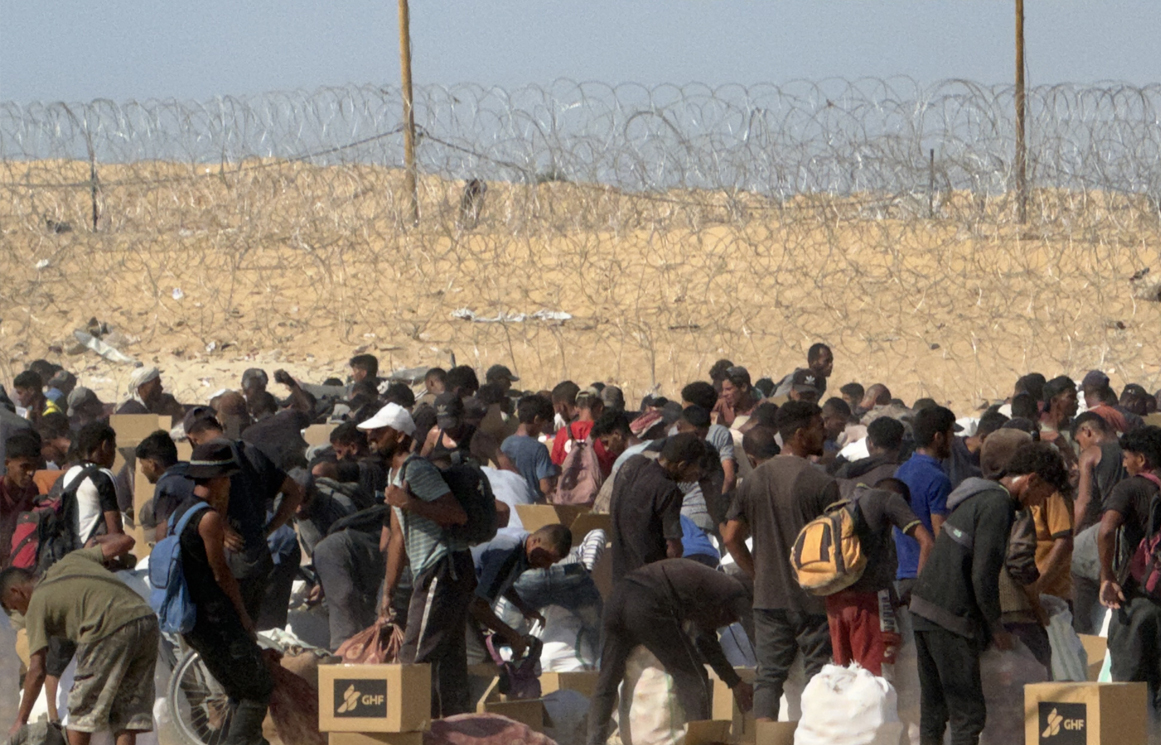Hanna Massad keeps in close contact with his former neighbors and church members still living in Gaza. A friend from Gaza Baptist Church told him that “all the people in the churches are feeling dizzy and have started experiencing health issues” from the widespread food shortage. A Muslim friend said it’s difficult to find food to feed his family.
To help Massad’s people, his nonprofit, Christian Mission to Gaza (CMG), distributes between 2,000 and 3,000 hot meals to Gazans each month. Under the umbrella of Gaza Baptist Church, which Massad previously pastored before moving to the US in 2008, CMG works with various kitchens across Gaza, where cooks prepare the meals and individually wrap each portion.
This allows the CMG staff to safely deliver food to the tent camps around Gaza where displaced families are staying, Massad noted. Using donations gathered abroad, the CMG staff shops around the territory to find the lowest prices for ingredients, an increasingly difficult task.
In the past, the meals included chicken. Now, meat is difficult to find, and its price has skyrocketed, Massad said, so their meals usually consist of rice and perhaps an added vegetable, such as eggplant. Each meal currently costs between $7 and $10.
Since the war began, the nonprofit has handed out more than 47,000 hot meals to Christians and the wider Muslim community and helped distribute clean drinking water. Massad hopes their ministry sends “a clear message of love and care during this time of deep suffering.”
Gaza’s hunger crisis has reached alarming levels, with the Integrated Food Security Phase Classification stating that the worst-case scenario of famine is playing out in Gaza. Right-leaning Israeli writer Haviv Rettig Gur noted that unlike previous false alarms, this time the hunger crisis is real and represents a “dramatic and strategic mistake on the part of Israel.”
The World Health Organization, an agency of the UN, reported that 63 people, including 24 children under the age of five, died of complications due to malnutrition last month. Meanwhile, Israeli prime minister Benjamin Netanyahu claimed there is no starvation in Gaza.
Since the end of Israel’s three-month blockade of Gaza in May, the US-backed and Israeli-supported organization Gaza Humanitarian Foundation (GHF) has taken over much of Gaza’s food distribution amid concerns over Hamas stealing aid. The UN criticizes GHF for endangering Palestinians, as they must cross Israeli military lines to reach GHF’s four sites, and for not providing enough aid.
International responses have intensified. France, Britain, Canada, and Australia announced plans to formally recognize the state of Palestine. American Republicans who have long supported Israel are criticizing Israel’s war strategy, with Representative Marjorie Taylor Greene labeling Gaza’s hunger crisis an act of “genocide.” US president Donald Trump acknowledged there is “real starvation” in Gaza and that “Israel has a lot of responsibility” for the limited food aid.
Joshua Youssef, president and CEO of Help the Persecuted, urged Christians to approach the current source of suffering in Gaza with nuance. Getting verified information out of Gaza is difficult, as Israel hasn’t allowed international reporters independent access to the territory since 2023 and Hamas has severely restricted press freedoms since it took over the enclave in 2007.
“This seems like a combination of chaos, war is hell, and both sides trying to control the narrative, with one side really trying to control the narrative,” said Youssef, referring to Hamas and the Palestinian Authority. Help the Persecuted supports Christians in the Middle East, North Africa, and Central Asia.
While Youssef acknowledges the possibility of negligence and poor execution of aid deliveries, he does not believe Israel is intentionally starving Palestinians. The level of scrutiny both inside and outside Israel would not allow for genocide, he said. Israel and GHF are trying to bring in aid, he noted, but face complex realities on the ground and people in Gaza who don’t want to see successful humanitarian campaigns move forward.
While media reports largely attack GHF, Youssef believes they are ignoring the ways the UN is failing Palestinians. His organization, which includes a network of 20 safe houses, has encountered numerous cases of UN bias against Christian converts from Islam seeking refugee status and other kinds of support.
“In certain cases, the UN hires locals and sometimes very religious and conservative Muslims to handle day-to-day operations, and this has not been a positive development for certain minorities, including Christians,” Youssef said.
Ken Isaacs, vice president of programs and government relations for Samaritan’s Purse, said that in a mid-July trip to Gaza, he attended a meeting where he learned that the UN had more than 900 parked trucks, many with rotting food, just inside Gaza. A few days later, he went to see the site and described a scene with hundreds of trucks filling “acres and acres of parking lots” near the border.
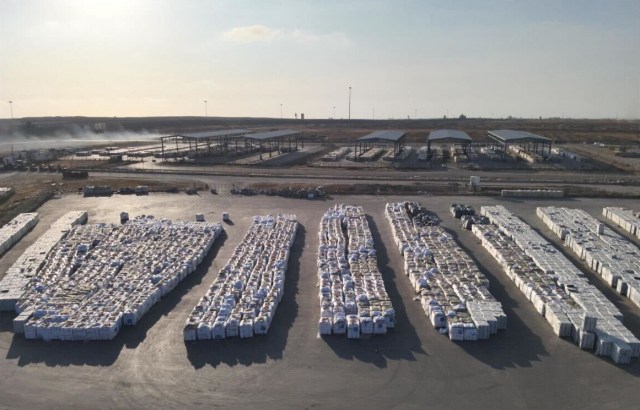 Courtesy of Ken Isaacs
Courtesy of Ken IsaacsIsrael’s government body for coordinating humanitarian aid posted drone footage of the parked trucks. Isaacs said he believes the negative publicity pressured the UN agencies to begin moving their aid trucks to their destinations.
Then the UN encountered problems. A combination of “desperate civilians, lawless gangs, clan-affiliated thugs, and merchants of death” looted the trucks, according to Ahmed Fouad Alkhatib, the head of Realign for Palestine.
The UN has acknowledged that 88 percent of its trucks have not reached their intended destination inside Gaza since deliveries resumed in May after a two-month Israeli blockade, undermining prior claims that “the vast majority of the aid that we get in, gets to civilians.”
While in Gaza, Isaacs talked to Palestinians who said Hamas had threatened to kill them and their West Bank family members if they worked with GHF. Attacks against GHF personnel in recent months have killed eight Palestinians and injured two Americans. “There’s strong resistance, I believe, to the idea of any entity that would be capable of delivering humanitarian assistance, other than the entity that was preexisting,” he said.
Isaacs, who has worked in humanitarian aid for more than 35 years, said he didn’t see starvation but witnessed a “thinning he hadn’t seen since Bosnia,” with some people’s clothes hanging off them. Other people looked healthy.
Although he went to Gaza with a bias against GHF because it “popped up out of nowhere,” he said he was ultimately impressed by the team’s professionalism.
During the food distribution, he saw desperate people running to the aid sites, but he argued that the process was methodical despite the competitive environment. The young and the strong arrived first, running with big bags and gathering various food items like potatoes, salt, and oil. The next surge brought average Palestinians, many of whom were slower and seemed grateful to receive aid. The last wave of people gathered the remaining boxes and crates to use for fuel.
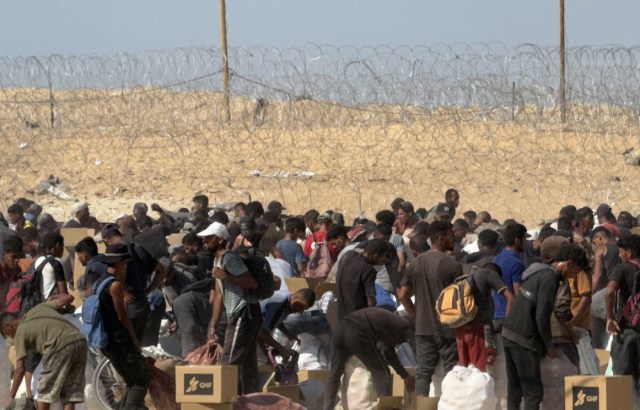 Courtesy of Ken Isaacs
Courtesy of Ken IsaacsGHF claims it has distributed more than 115 million meals in Gaza and has not fired upon those getting aid. The Israel Defense Forces admits to firing warning shots into crowds, resulting in fatalities at security corridors near distribution sites, but it claims the UN’s death toll of more than 1,000 is inflated.
Massad often hears about the deaths of Gazans approaching aid sites. A neighbor’s relative died from a missile attack on his way to get food for his six children.
On Sunday, a church member at Gaza Baptist messaged Massad about a young believer he is discipling. The new convert went with his 32-year-old cousin to an aid distribution center. Only one man returned home alive. The cousin died from gunshot wounds to the neck.
“In Gaza right now, even the most basic human decision—finding food, checking on a home—can become fatal,” Massad said.
Isaacs said there’s no good way to deliver aid in a war zone like Gaza. Many of the problems stem from challenges with even distribution. Samaritan’s Purse is partnering with several organizations, including GHF, to distribute its aid.
On July 26, Samaritan’s Purse sent to Israel its Douglas DC-8 and Boeing 757 cargo planes filled with nearly 50 tons of food, including sachets with fortified peanut butter. A third plane landed this month, and their deliveries into Gaza began on August 6.
“It’s just a tough situation, and at the end of the day, it’s only going to be resolved by getting enough food down on the ground to make food nearly worthless,” Isaacs noted.
GHF hopes to expand from 4 to 16 locations that are run in shifts throughout the day to break down the crowds. Israel has paused its fighting in some parts of Gaza, approved some imported food for sale, and begun airdropping aid. Yet Gazans need much more food, and on Friday, Israel approved plans to capture Gaza City, which will intensify the fight and make aid distribution more difficult.
For Massad, delivering food to the hungry is one way the church can be a witness to its neighbors, as Christians in Gaza can’t be open about their faith. Many Palestinians associate Christianity with the West.
“While we do have some level of freedom inside the church, outside those walls, Christians must be very careful about what they say, how they say it, and when they say it,” said Massad, who continues to co-lead online worship services for the small number of church members who have remained in Gaza.
“Through this ministry,” Massad said, “we’re showing that Christians care deeply and that we are present here among the people, reflecting Christ’s love in a practical and compassionate way.”
Correction: An earlier version of this article misstated the number of years Isaacs worked in humanitarian aid.

